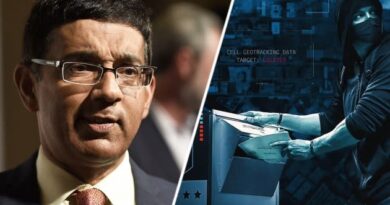Camden: Voter fraud extremely rare
The case was referred to local prosecutors and an investigation did eventually come up with a likely suspect who was charged last week with felony voter fraud — Donald Hartle.
The tipoff may have been that the ballot was counted because the signature on the mail-in ballot matched his late wife’s signature, which would be pretty difficult for some random ballot pirate who reached into the Hartle mailbox and made off with Rosemarie’s ballot. There may have also been the “tell” known as Hamlet’s mother rule, who observes that a character on stage “doth protest too much, methinks.” He may have had motive, considering he’s a top executive at a company that hosted President Trump for a late campaign rally in Vegas.
This is not to suggest that voter fraud doesn’t happen. The Washington Secretary of State’s office checked with elections officials across the state, and so far has reports of 175 possible cases from the 2020 election referred to the local county sheriff or prosecutor offices. Ten have been taken to court for prosecution, several settled and many are still under investigation.
In one of the cases, a 77-year-old Randle man was convicted of voting twice by marking his ballot and his wife’s ballot. She died in August, but he told deputies he did it because he knew how she would have voted. The man was fined $600 and temporarily lost his right to vote.
Other cases around the state involve people who received more than one ballot because they’ve registered twice, or people who apparently collected several ballots for people who live in their homes, then marked, signed and mailed them.
Counties that have notified the state counted a total of almost 3.5 million ballots. If all 175 of those referrals were to result in a successful prosecution, that would be a fraud rate of .00005 percent.
Even if all 175 cases involved votes for the same candidate — unlikely, considering miscreants come in all political persuasions — there’s only one statewide race in the last century they could have changed. That would be the 2004 gubernatorial race in which Christine Gregoire beat Dino Rossi by 129 votes. Make that 133 if you count the four illegal votes for Rossi that turned up during the state Republican Party’s challenge to Gregoire’s victory.
Because it’s rare and usually de minimis doesn’t mean it should be ignored. People who get caught doing it should be punished and systems should be improved to make it rarer.
But it also doesn’t mean that an individual case here or there can be used to support a theory of widespread conspiracy by criminal masterminds trying to steal the election.
Because as every young cop reporter also learns, and cases of voter fraud tend to bear out, criminal masterminds only exist in comic books.
*** This article has been archived for your research. The original version from The Columbian can be found here ***


